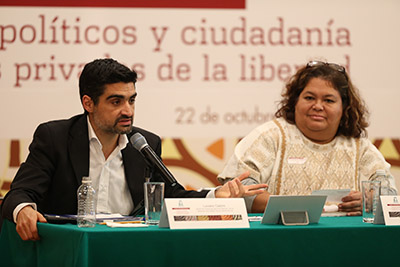“I don’t tell my friends about my dad because they make fun of me, they say that I’m a thief’s son.” – Juanito, 11, lives in the Dominican Republic and is the son of a father who has been in prison for three years. It has been two years since he saw his father.
CWS has a long and proud history of partnering with organizations across Latin America to support children and youth in low-income households who are victims of hunger, poverty and several forms of violence. In 2011, the U.N. Committee on the Rights of the Child issued a series of recommendations regarding children with incarcerated parents which encouraged CWS to start working on this issue in the region.
Thus, we decided to support the production of the first ever regional research effort about Children of Incarcerated Parents in the region. Once finished, Invisible No More brought to our attention that roughly two million children in Latin America and the Caribbean have a parent in prison. (As of 2015, there were roughly 1.5 million incarcerated people in Latin America and the Caribbean, 95 percent of whom are men, and 75 percent of whom are parents to an average of 2.5 children each.)

CWS’s Luciano Cadoni speaks at an event in Mexico about children of incarcerated parents. Photo: TIFE
As noted by the Center for Disease Control, which lists parental incarceration as an Adverse Childhood Experience, these children suffer a unique combination of trauma, stigma and shame that aggregates to existing vulnerabilities and risk factors and the issue here is that these children are innocent. They have committed no crime and should not be punished or suffer any violence at home or school or in their community for the behavior of their parents.
Although most of the incarcerated are men, supporting children of incarcerated parents is overwhelmingly about women. Of the two million children that have an incarcerated parent, 99 percent of them have a female caregiver. That caregiver is usually their mother, but she can also be an older sister, aunt or grandmother. Violence against women is a correlated issue, both for the half of the children with incarcerated parents who are female and for female caregivers.
For the past few years, CWS has led and financially supported the formation and strengthening of a regional platform – which Luciano co-coordinates – aimed at making these invisible children visible. The coalition, known as NNAPES, works to raise awareness throughout Latin America about the impact of parental incarceration on children and to move governments and civil society organizations serving these children to action.
NNAPES has active members in eight nations across Latin America and the Caribbean.
Member organization Colectivo Artesana is helping Guatemala become the first nation in Latin America to create a national registry of children and adolescents with incarcerated parents. In Argentina, members have joined the National Ombudsman in an special working group to address the specific needs of children with incarcerated parents, working alongside civil society organizations, representatives of judicial bodies and United Nations offices. In Uruguay, based on advocacy actions led by NNAPES member Gurises Unidos, the first ever interagency task force was created to address this issue. Chilean organization Enmarcha has recently joined the group. Enmarcha helps implement the only state funded program of children of incarcerated parents in the region, known as Abriendo Caminos, in the Santiago area. In the Dominican Republic, NNAPES member Proyecto Educativo Caminante offers job skills training for caregivers like Juanito´s mother and offers after school programs for kids like Juanito and his sister.
Based on these and other advocacy actions, including the presentation we did last year to the InterAmerican Commission on Human Rights, we are making sure our message is heard across Latin America and that change is taking place. Together, with commitment and effort we are working day by day to make invisible children visible.
Martin Coria is CWS’s Regional Coordinator for Latin America and the Caribbean. Luciano Cadoni is the Program Officer for the Protection of the Rights of the Child.

